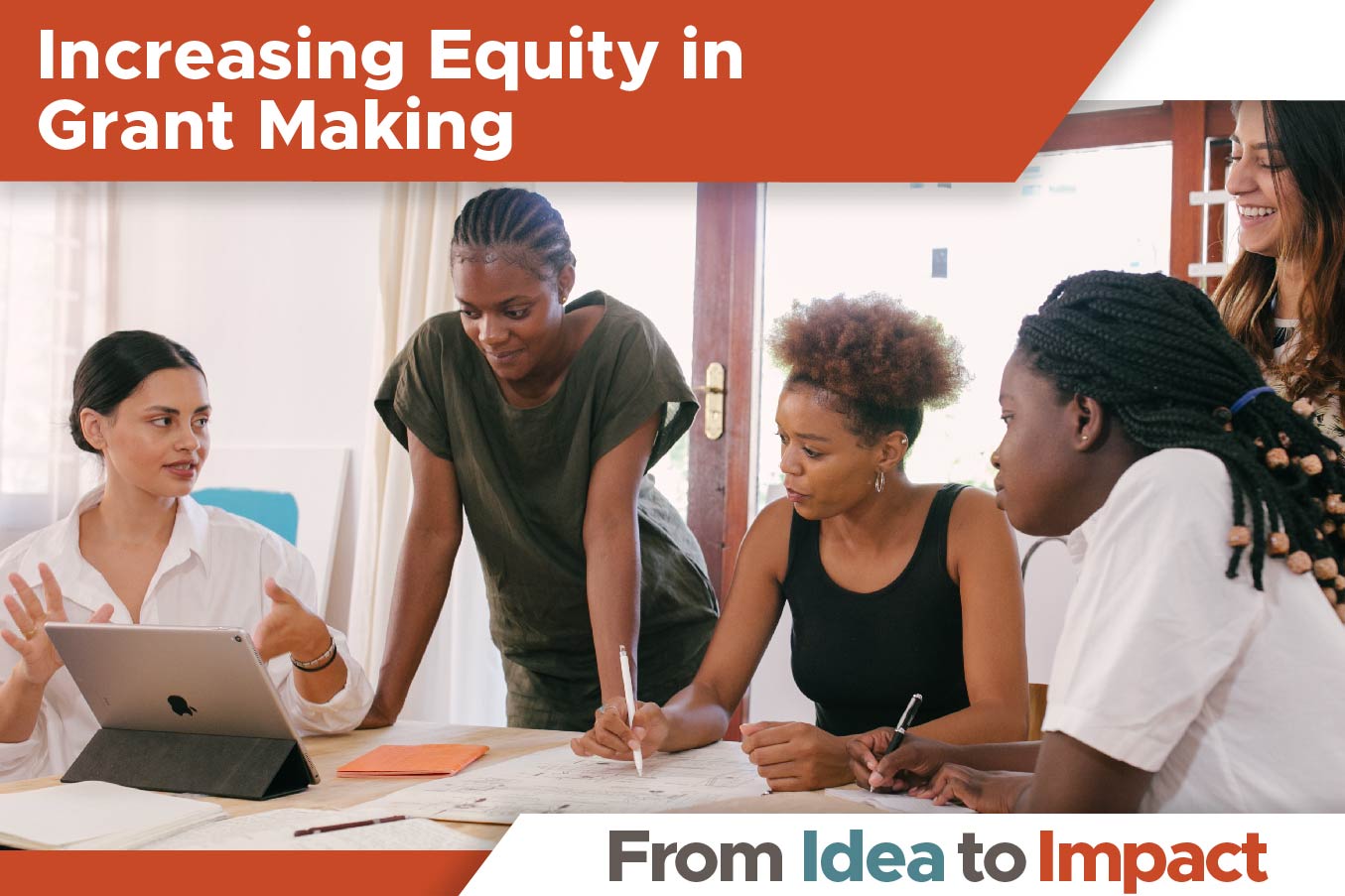Increasing Equity in Grant Making

The disruptions of 2020 shined a bright light on gaps and inequitable power dynamics that too often limit philanthropy’s ability to achieve its desired impacts. Specifically, the deep inequities exposed by COVID-19 and the ongoing movements for racial justice exposed in a new way a system-wide challenge that many had already recognized: the need for the philanthropic community to reflect on and reconstruct grant-making systems and processes that are products of white-dominant culture and that tend to reproduce rather than redress inequity.
In far too many cases, Black, Indigenous, and People of Color (BIPOC)-led organizations are well positioned to do the necessary work to affect systems change but are effectively blocked from accessing grants by complex and time-consuming processes that historically favor larger, predominately white organizations. Intentionally or not, the former organizations and the communities they represent have also often been absent from decision-making processes that dictate where and how resources are allocated among their communities.
Before the coronavirus crisis, the Arabella Advisors team had already embarked on a long-term effort to increase equity in grant making, including though work with our clients and partners at several fiscal sponsor nonprofits—the New Venture Fund, the Windward Fund, and the Hopewell Fund. When COVID-19 hit, we accelerated our collective efforts, both to help speed relief efforts and to help ensure equitable practices within those response efforts and beyond. Our Arabella colleagues have already written about some of the work we undertook with our partners in the following blog posts and other resources:
- Prioritizing Equity in COVID Relief Efforts
- Responding to COVID-19: The Kataly Foundation’s Approach
- 4 Lessons For Public-Private Partnership from a COVID-19 Rapid-Response Effort
- From Talk to Action: Embedding Equity and Inclusion Principles in Governance Design
At the same time, we continued to pilot new practices with several projects hosted at by the fiscal sponsor nonprofits. Building on one of the six principles from the trust-based philanthropy model, we looked to streamline paperwork and simplify processes, reducing or eliminating potential barriers by paring back application processes and requirements, shortening grant agreements, and reducing or removing reporting requirements.
Based on what we have learned to date, the New Venture Fund, the Windward Fund, and the Hopewell Fund rolled out new streamlined grantmaking processes earlier this year, designed in conjunction with the Arabella Advisors team. Last week, one of us (Krista Batey) presented insights from this work alongside one of our partners from the New Venture Fund as part of PEAK Grantmaking’s Virtual Spring Workshop Series. Throughout the rest of this year, we will share a series of blog posts and other materials related to this ongoing work, exploring a variety of ways to increase equity in grant making, including ways to make the process more participatory.
If you are interested in learning more about this work, please let us know. We recognize that our own work to further equitable grant making continues to grow and evolve, and we invite feedback and conversation from others on what they are learning as we collectively engage in this work. While we don’t pretend to have all of the answers, we do pledge to be honest and open about our progress and the pitfalls we face in implementing these processes and changes. We are convinced that building a more just and equitable future depends on doing so.
